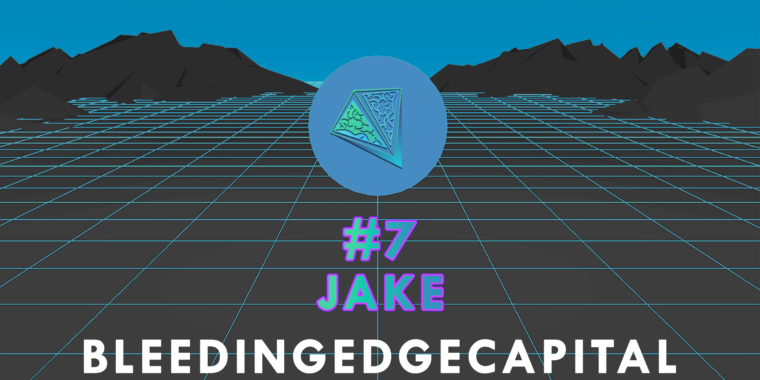
In this week’s episode of Proof of Talk: The Cryptocurrency Podcast, I am joined by crypto hedge fund manager Jake Tullis. We had a great conversation on the power of value investing and general guidelines to keep in mind when building an investment portfolio.
🎧 Listen to the full podcast: Spotify | YouTube | AppleMusic
During this conversation, Jake emphasizes the importance of understanding the fundamental principles of blockchain and emphasizing the fact that blockchain technology is still a relatively young tech where innovative new applications are still discovered on a regular basis. There are likely many more groundbreaking implementations of blockchain technology that we haven’t even began considering, but there is only a matter of time until a new breakthrough is discovered.
Principles of Crypto Investing
Jake explains his approach to evaluating cryptocurrency investments, which is founded on established principles like Metcalfe’s Law. Metcalfe’s Law states that the value of a network is proportional to the square of the number of connected users or nodes. The bigger a network is, the higher its value. This is especially relevant in blockchain, where the number of nodes have a direct impact over a network security and speed.
Another law JT relies on is Lindy’s Law, which suggests that the longer a non-perishable idea or technology has existed, the more likely it is to continue thriving. Applying Lindy’s Law to cryptocurrencies, it becomes clear that well-established projects with a long history are more likely to persist.
Both Metcalfe’s and Lindy’s laws are built on a similar mathematical formula which states that the more complex a system is, the higher the likelihood to organize itself, rather than descend into chaos.
The Role of Decentralization and Security
As a software developer, Jake highlights one of the security advantages of a decentralized network compared to centralized systems. He points out that centralized systems, like Twitter, pose single points of failure, leaving users vulnerable to security breaches. That is because monolithic organizations own all of their servers and data and are solely responsible for keeping it secure. Decentralized networks, on the other hand, distribute trust among a wide number of nodes, offering a much more secure environment.
The Arrival of ETFs
Recent developments in the cryptocurrency space have sparked optimism among investors. The potential approval of cryptocurrency Exchange Traded Funds (ETFs) is one such development. Regulatory progress, including the pre-approval by institutions like the DTCC, suggests that ETFs may soon become a reality. This could attract significant investment and further legitimize the cryptocurrency market.
In conclusion, navigating the cryptocurrency investment landscape requires a comprehensive understanding of the technology, laws, and market dynamics. Jake shares valuable insights into evaluating investments based on established laws and principles. While the cryptocurrency world may appear complex, those who invest wisely and stay informed are likely to reap the benefits of this ever-evolving financial frontier.
🎧 Listen to the full podcast: Spotify | YouTube | AppleMusic
Enjoyed this article?
Sign up to the newsletter
You’ll receive more guides, articles and tools via e-mail. All free of course. But if you value this blog and its educational resources, you can subscribe to become a paid member for only $3 a month. This will keep the website open and free.
